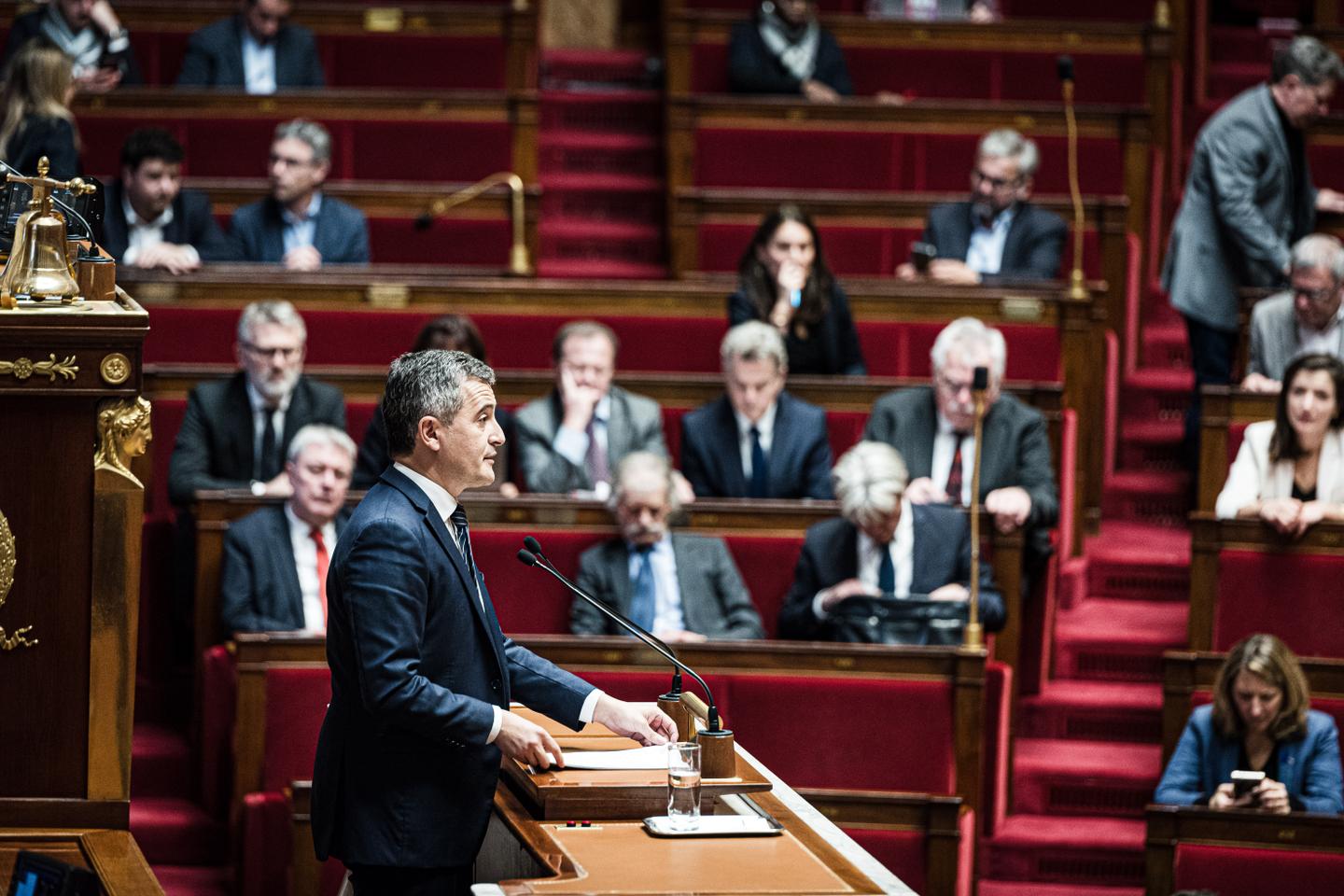


Nine months after the highly complicated adoption of the pension reform, the French government has once again discovered just how fragile it is. The left and right together inflicted a huge blow to the government on Monday, December 11, when they joined forces to reject the immigration bill before even debating the bill on the floor of the Assemblée Nationale. But Monday night's surprise vote is not a failure for Interior Minister Gérald Darmanin only.
Darmanin, who comes from the ranks of the Les Républicains (LR, right) party, knows the inner workings of Parliament well. He set himself the challenge of getting the bill adopted by first conceding a great portion of it to the right-wing majority in the Sénat, before attempting to rebalance the bill in the Assemblée Nationale.
His recent weeks of negotiations were shattered when the far right, followed by almost all of LR lawmakers, decided to vote in favor of a motion to reject tabled by the Greens and supported by the entire left-wing alliance (NUPES).
In a vote that came down to just five votes, everything collapsed: The illusion that the government, by listening and talking, would manage to hold both ends together, a repressive approach on deportation and an outstretched hand to immigrant workers; the president's ability to apply his en même temps approach, a refrain he uses to position himself as a unifying centrist; and the political hopes of Darmanin, who intended to use the bill's passage as a launchpad for the 2027 presidential election. After acknowledging that he had failed, Darmanin offered his resignation on Monday evening. Macron didn't accept it. The president instead asked Prime Minister Elisabeth Borne to rapidly provide him with proposals likely to end the legislative deadlock.
No reliable allies
The text has not been buried, but the government is finding it has less and less control as it is surrounded by opposition MPs who would prefer to tear down the foundations of Macron's policies even if it means making incoherent alliances. On a subject as divisive as immigration, it is deeply disturbing to witness the NUPES coalition extoll their spirit of openness and concern for humanity, before accepting without batting an eyelid that the right and far-right vote for the same motion for opposite reasons. If there is a final text, "it risks being hardened by the right," conceded communist Fabien Roussel, who, more lucid than his partners, spoke of a "relative victory."
Growing polarization plays into Marine Le Pen's favor. On immigration, she has the LR MPs at her mercy and is also successfully putting the government in difficulty. Over the months, LR president Eric Ciotti has aligned himself so closely with the RN that it is becoming increasingly difficult to tell the two parties apart. This shift is not only mortifying for the traditional right, it is also problematic for Macron, who has no reliable allies to help him consolidate the end of his term in office.
In his weakened state, the president is not entirely helpless. He can try to engage in the battle of public opinion and draw on the expectations of the French to denounce political games. Unlike the pension reform, this text on immigration benefits from strong public support, if the polls are to be believed. This is the only card Macron has left to play.
